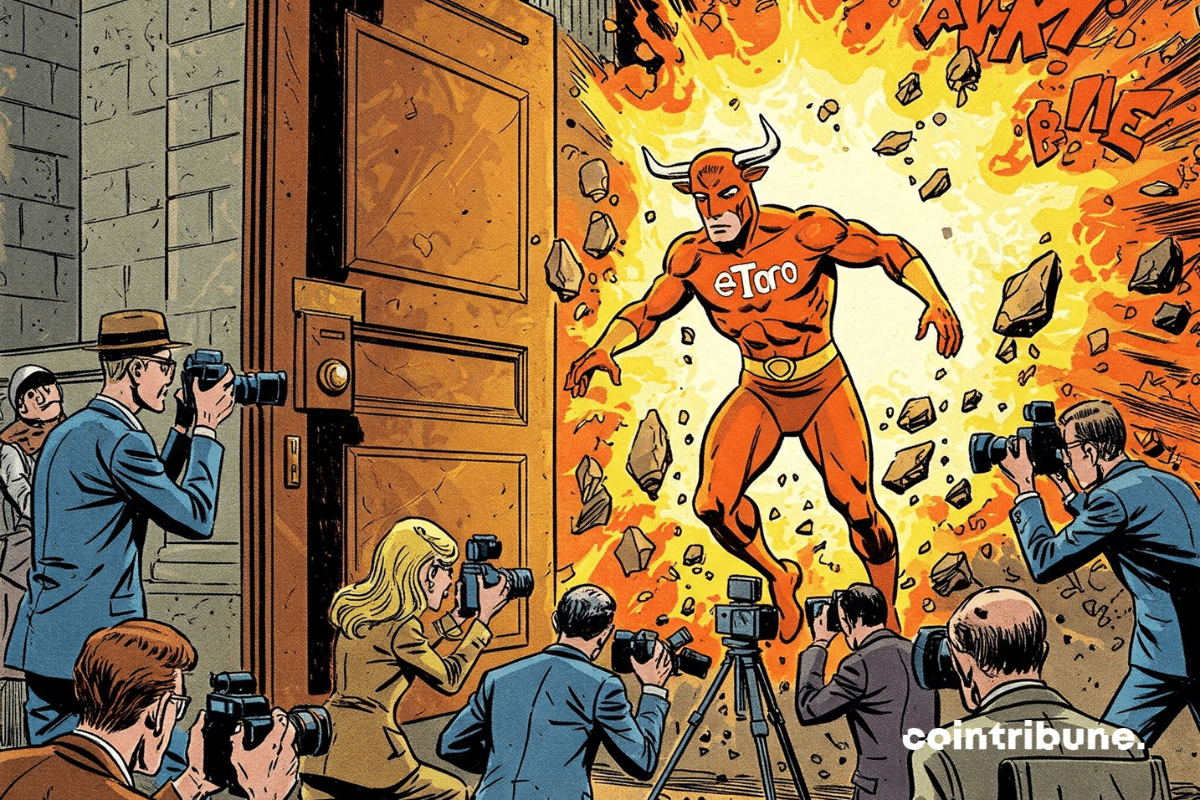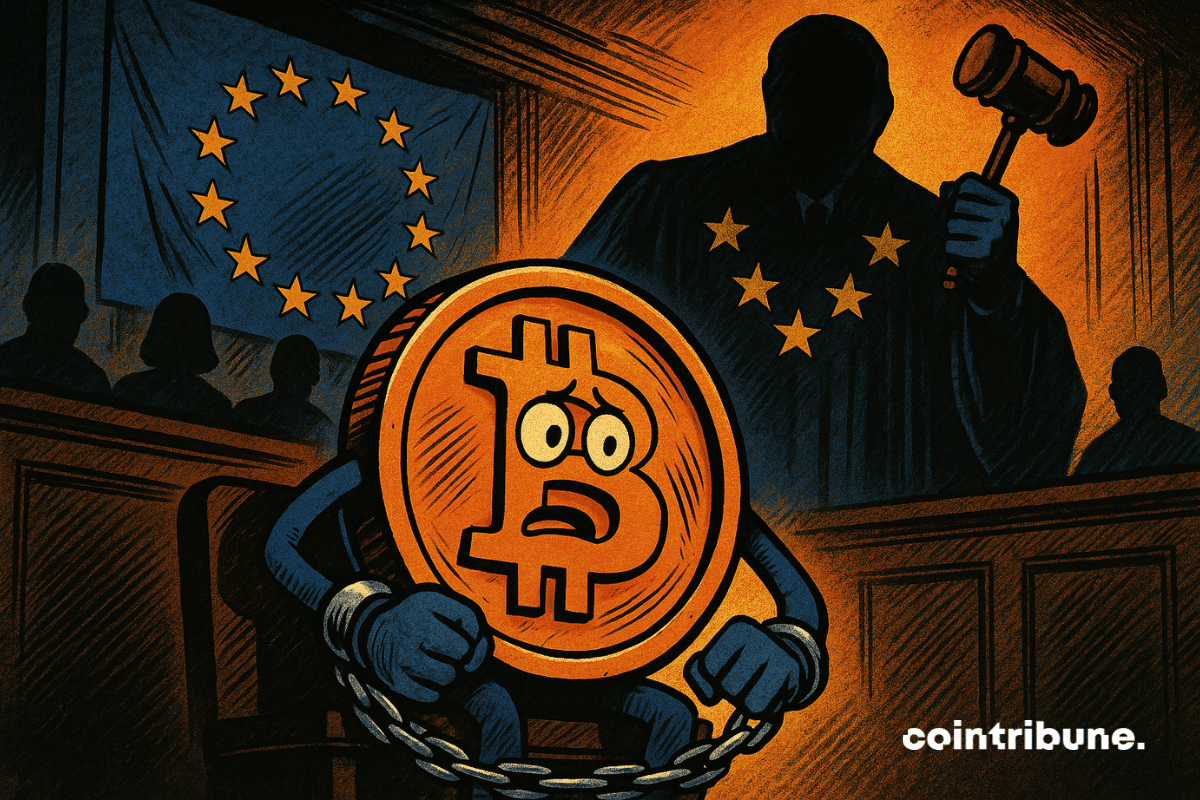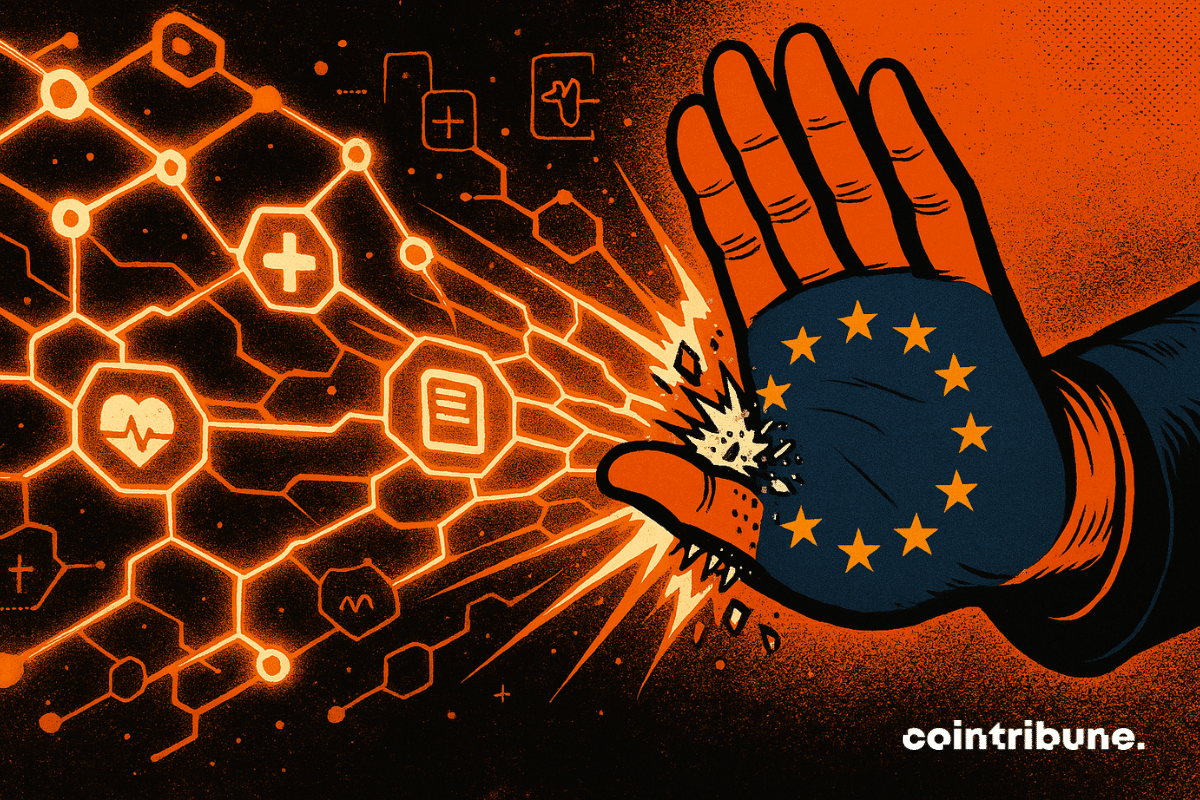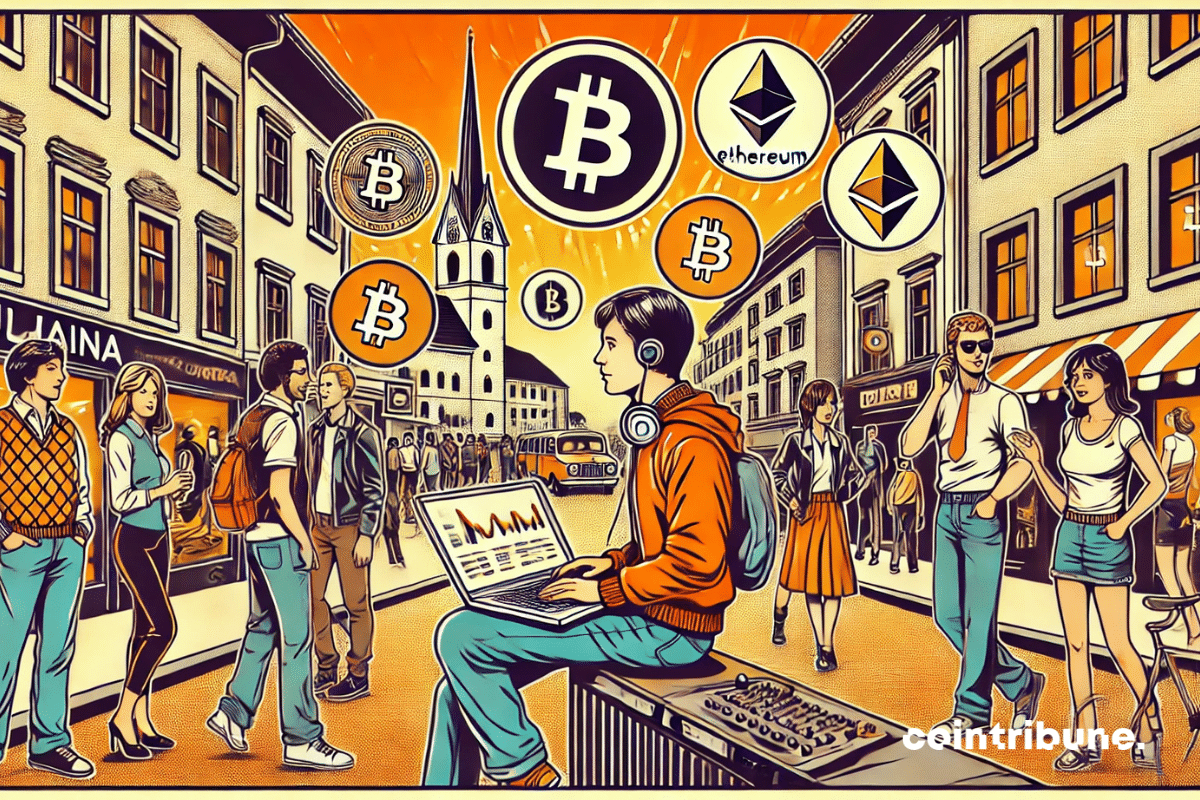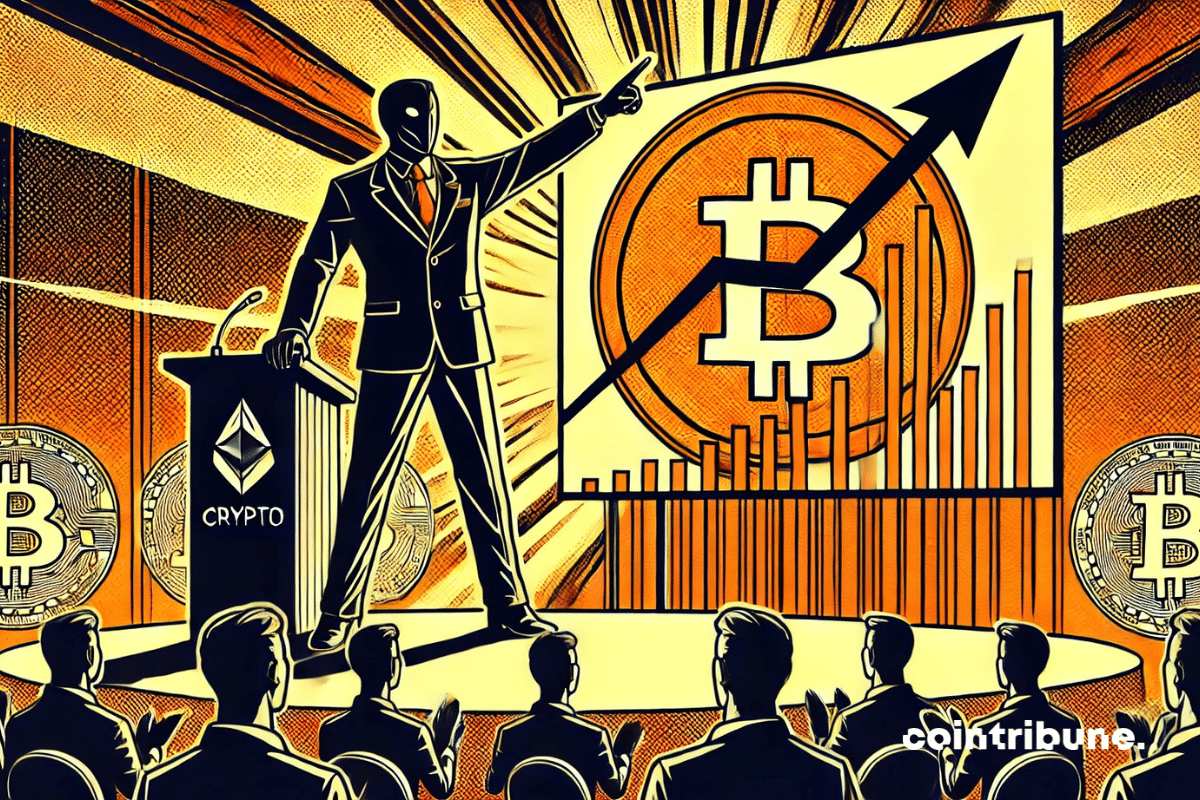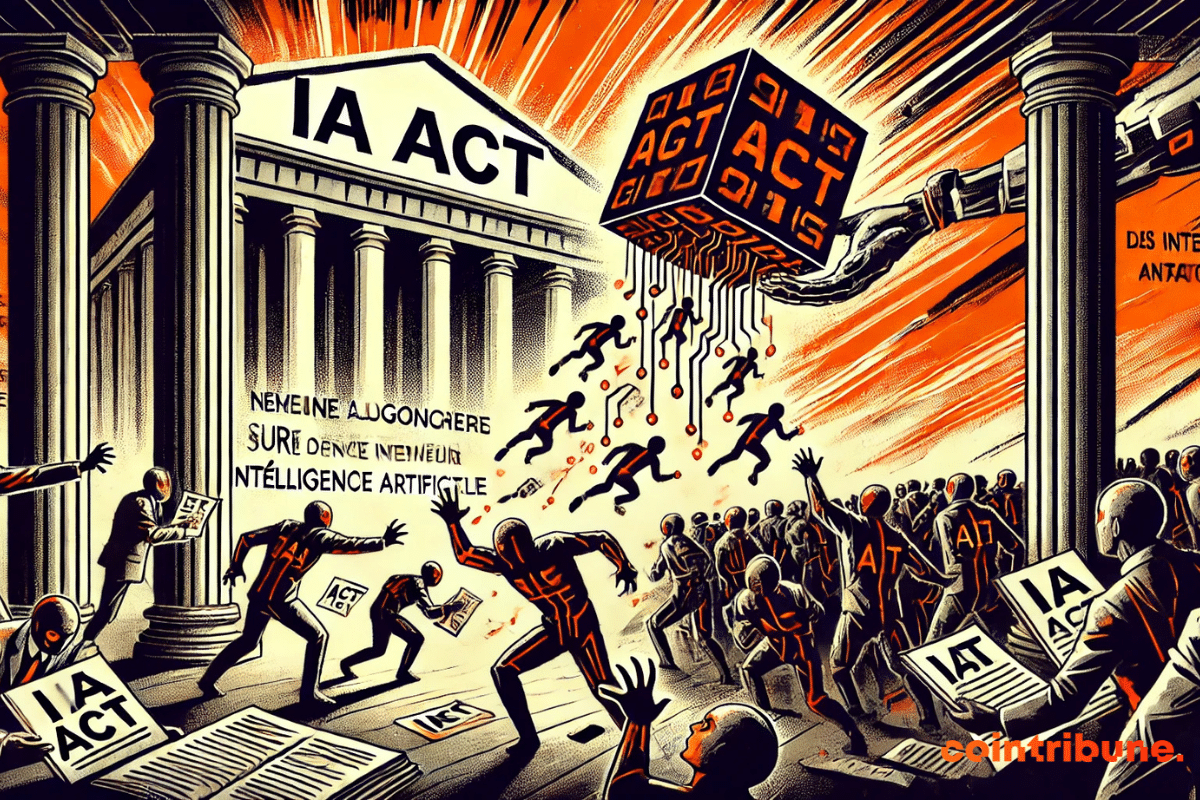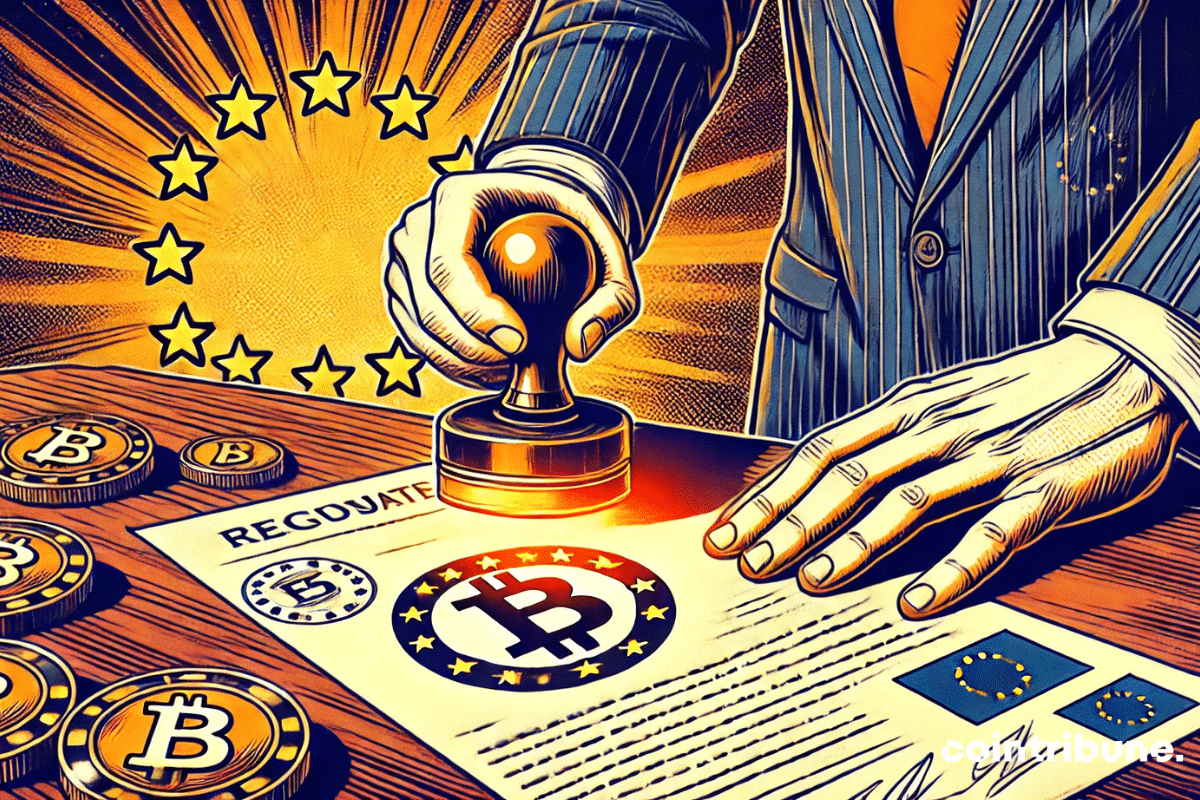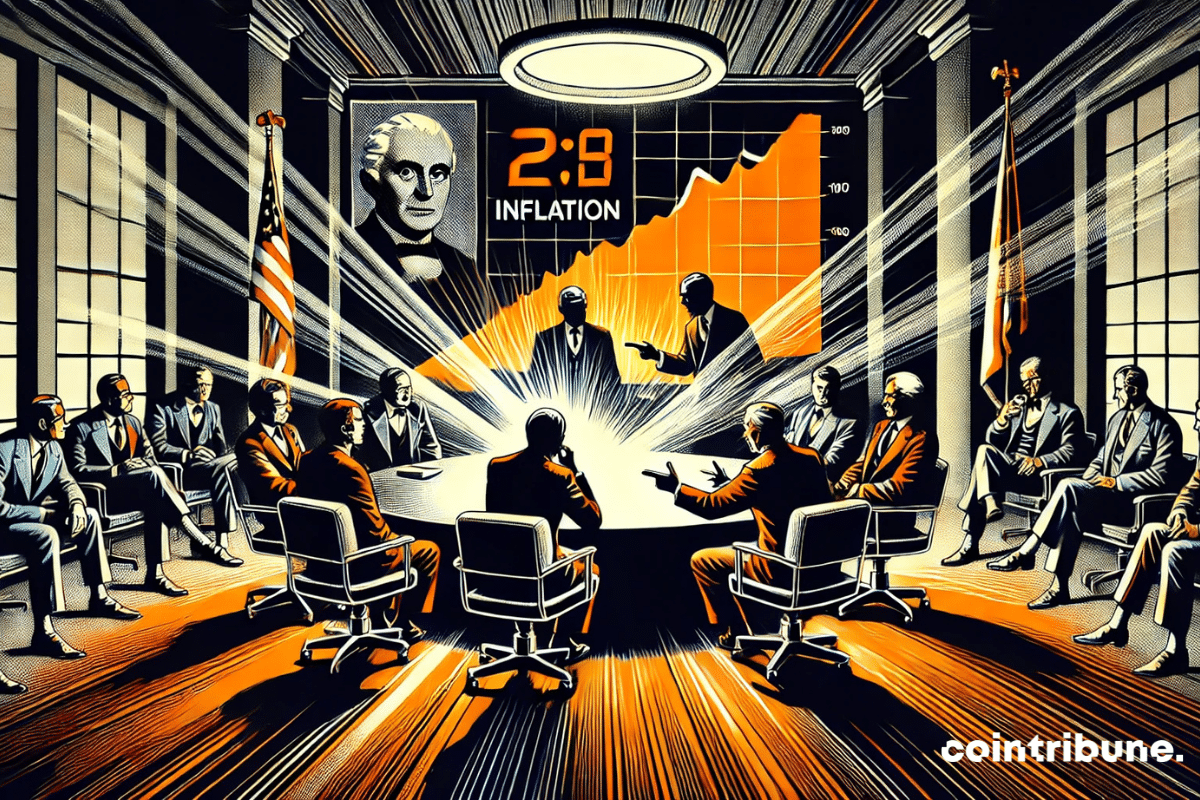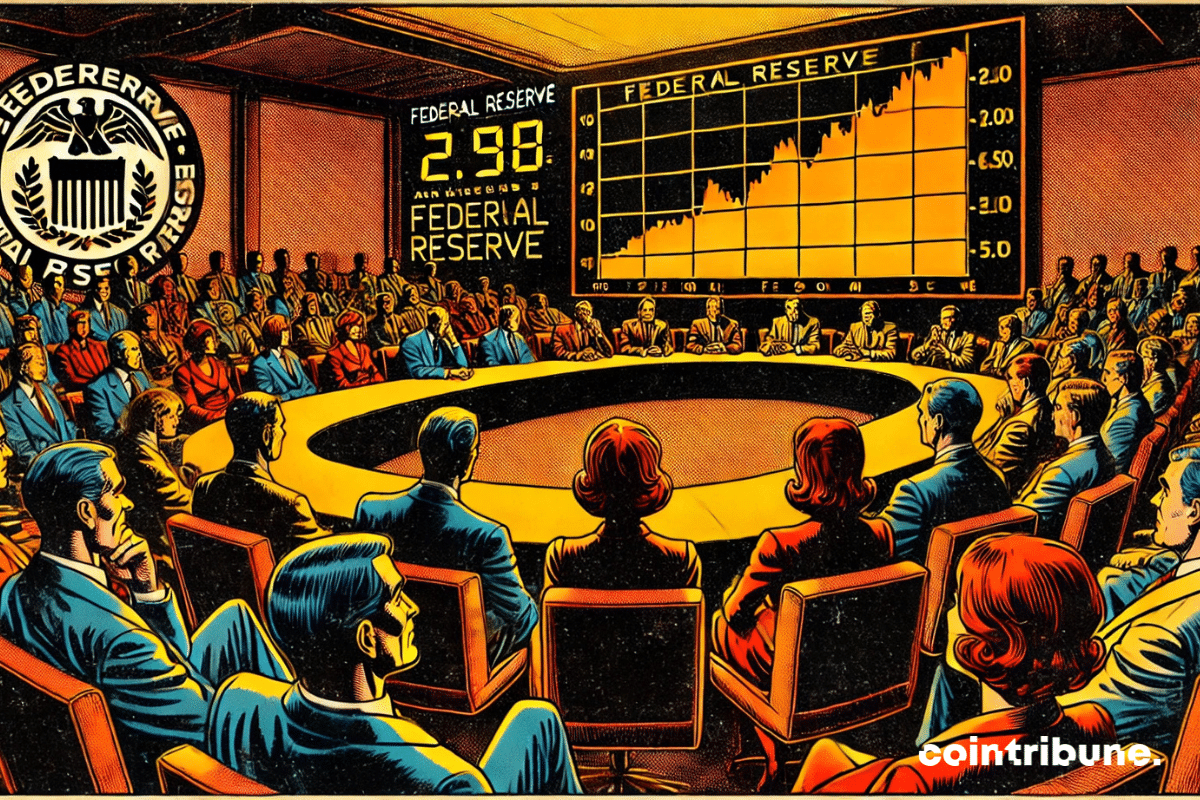eToro will raise $500 million and targets a $4 billion valuation. We tell you everything about this IPO that is shaking up the crypto sector.
Theme Regulation
The European Data Protection Board (EDPB) has recently integrated the Bitcoin public key into the scope of the GDPR, turning every transaction into a legal issue. While not formally banning cryptocurrency, this approach creates a difficult gray area to navigate.
While Asia rushes and America funds, Europe shuffles paperwork, piles up regulations, and waits for innovation to knock at its door… with form B-27.
The global financial geography is experiencing a spectacular transformation. Far from the sanitized skyscrapers of Wall Street or the centuries-old Swiss banks, a new map is emerging: that of the cities that have embraced the blockchain revolution without complexes. Ljubljana, the Slovenian capital nestled between the Alps and the Balkans, embodies this metamorphosis. With regulatory boldness and a crypto culture already ingrained, it now outshines Hong Kong and Zurich. How has this city of 300,000 inhabitants managed to dominate the game? The answer lies in a subtle mix of legislative pragmatism, agile infrastructures, and an almost organic popular adoption.
The crypto scene could have marked a historic turning point. A partnership between Nvidia and a blockchain network, an official recognition of crypto by a giant in the semiconductor industry. Yet, as usual, hope turned into a mirage. Just a few hours before the announcement, Nvidia withdrew its support, leaving the project in uncertainty. A scenario that summarizes a tumultuous relationship: despite the technological advancements of blockchain, the Californian company sticks to a clear stance. Crypto remains persona non grata in its ecosystem.
Jerome Powell, the chairman of the Federal Reserve (Fed), is facing increasing political pressure from Donald Trump, who is calling for an immediate reduction in interest rates. But Powell has no intention of yielding. Loyal to the independence of the institution he leads, he prefers to base his decisions on economic data rather than political demands.
Paul Atkins officially takes the helm of the SEC and could change the game for the American crypto universe. Details here!
In a world where information often blends with misinformation, Telegram, the encrypted messaging app, found itself at the center of an unprecedented controversy. While France claims to have forced the platform to comply with European regulations following the arrest of its founder, Pavel Durov turns the accusation around: according to him, it was the French authorities who delayed implementing the procedures stipulated by the EU. A rhetorical duel that reveals deeper tensions over the control of tech giants.
Galaxy Research proposes a new voting mechanism to adjust the inflation of SOL on the Solana blockchain. This innovative system aims to surpass the limitations of binary voting by introducing a more representative decision-making method, thereby strengthening the decentralized governance of the Solana crypto ecosystem.
While Beijing maintains a strict ban on cryptocurrencies, a paradoxical reality is emerging: local governments are quietly selling off seized digital assets, filling their public coffers. Between opacity and financial urgency, this practice reveals the cracks in a system torn between repression and economic pragmatism. A tangle that reignites the debate on the legal framework for these assets, in a geopolitical context where China watches with suspicion the crypto-American advances.
France is struggling with a massive deficit, Bayrou calls for more work, but amid social cuts and political tensions, the reform risks triggering a governance crisis.
While economists count illusions, Bitcoiners sense the truth. False data, weakening dollar: a new monetary dogma is being born before our eyes, far from official reports.
In response to the turbulence in the financial markets amplified by Donald Trump's trade policies, Susan Collins, president of the Boston FED, announced that the Federal Reserve is preparing to intervene. Among the options considered to stabilize the markets, a reduction in interest rates could become inevitable if the situation deteriorates.
Is the XRP case coming to an end? Ripple and the SEC suspend their appeals. The crypto ecosystem could emerge stronger. Details!
Ethereum ETFs, still lagging behind Bitcoin, are awaiting the blessing of staking to rise. The SEC could seal their fate by the end of 2025, but uncertainty remains.
A speculative wave approaching? Hoskinson predicts a Bitcoin orbit by the end of 2025. Discover the details of this prediction here!
Long suppressed by regulations deemed hostile, the American crypto industry may be on the brink of a major turnaround. Indeed, Donald Trump's return to the White House is accompanied by a clear shift in direction: to make the United States a bastion of financial technologies. An unprecedented discourse is taking root at the top of the state, driven by a desire to break away from the Biden era. Behind the announcements, a strategy is taking shape, promising a new momentum for cryptos and a rehabilitation of the sector in the eyes of regulators.
As the American economy wobbles, Donald Trump secures a strategic victory in the Senate with the unlocking of a controversial budget. Behind this success lies a political clash with global repercussions. For both investors and crypto players, this vote opens an uncertain sequence that could redefine financial balances and impact the trajectory of markets.
Money migrates, silent and methodical. Wall Street, once untouchable, sees its throne wobble under the hurried steps of investors, captivated by a Europe shining with trillions.
The BRICS continue to redefine the global geopolitical landscape. As the group expands and seeks to strengthen its influence, its relations with the West become strained. The latest episode: Iran, a new member of the bloc, has categorically rejected any negotiation with the United States. "Negotiating with America does not solve any of our problems," Tehran stated. This is a firm refusal of any diplomatic opening with Washington. This positioning, much more than a simple political statement, illustrates a growing rift between the BRICS and Western powers.
The EU, always quick to unleash paperwork before innovation, will implement its AI Act this Sunday: spectacular bans, imposed transparency, massive sanctions... AI had better watch out.
OKX and Crypto.com obtain their MiCA licenses. They gain access to 400M customers in 30 European crypto markets. Details here!
Entrepreneur and former presidential candidate Vivek Ramaswamy steps down from his position as co-director of the Department of Government Efficiency (DOGE) to run for governor of Ohio. This unexpected departure leaves Elon Musk as the sole leader of this controversial new federal organization, created by presidential decree.
The Department of Government Efficiency (DOGE), led by Elon Musk, could face legal action as soon as it is officially established. The law firm National Security Counselors is preparing a 30-page complaint, alleging violations of federal transparency law.
While the American economy soars like a star, Europe gets lost in a maze of rules and bitter regrets.
The Bank of Russia has recently introduced new regulations aimed at enhancing the oversight of currency exchange operations involving digital rights. These rights, as defined by Russian law, include electronic records such as cryptocurrencies, tokenized securities, and digital tokens. This initiative aims to integrate digital assets into the traditional financial system while ensuring financial stability.
The American Federal Reserve is divided over the potential inflationary consequences of the tariff increases promised by Donald Trump. While some officials downplay the risks, others fear a resurgence of inflation in an already strained economic context.
China is at a pivotal economic turning point. As the combined effects of weak consumption, an intensified real estate crisis, and high unemployment hinder its development, Beijing has just announced an ambitious budget policy for 2025. The stated objective is clear: to stimulate domestic demand and stabilize an economy under significant pressure. To achieve these ambitions, the government plans a significant increase in public spending, coupled with a revision of its fiscal priorities. These measures, detailed during a national conference, reflect a firm commitment to support local communities, expand social benefits, and strengthen resources for struggling businesses. Such a strategy, centered around innovation and strategic technologies, also aims to revitalize trade exchanges in order to adapt debt rules. With this comprehensive approach, Beijing intends to lay the groundwork for more resilient economic growth and to address the structural challenges that hinder its trajectory.
The crypto ecosystem could enter an unprecedented transformation phase. For years, markets have followed well-established cycles dictated by the internal mechanisms of bitcoin, including the halving, which times the periods of rise and fall. Today, a large-scale political initiative is emerging, likely to disrupt these historical foundations. American Senator Cynthia Lummis has proposed the Bitcoin Reserve Act, a bill aimed at recognizing bitcoin as a strategic reserve asset for the United States. This initiative, which plans for the gradual integration of one million bitcoins into the U.S. federal reserves, is set against a backdrop of increasing economic and geopolitical rivalries. As powers like Russia and Germany also consider adopting similar strategies, this proposal raises questions. Furthermore, the implications of such an approach go beyond American borders and redefine the role of Bitcoin on the international stage, granting it an unprecedented status in the history of cryptos.
The global economic landscape is at a critical phase. Every decision by the Federal Reserve (Fed) becomes a key signal, closely monitored by investors and financial analysts. In this context, the imminent announcement of a new interest rate cut sparks keen interest. As inflation, once rampant, begins to return to more controlled levels, the Fed is considering reducing its benchmark rate once again, this time to a range of 4.25% to 4.5%. This measure, which is part of an economic stabilization strategy, leaves no market indifferent. For cryptocurrencies, this announcement fuels both hope for a more favorable monetary environment and fear of increased instability. As Bitcoin and Ethereum already face significant declines, investors question the prospects ahead.
